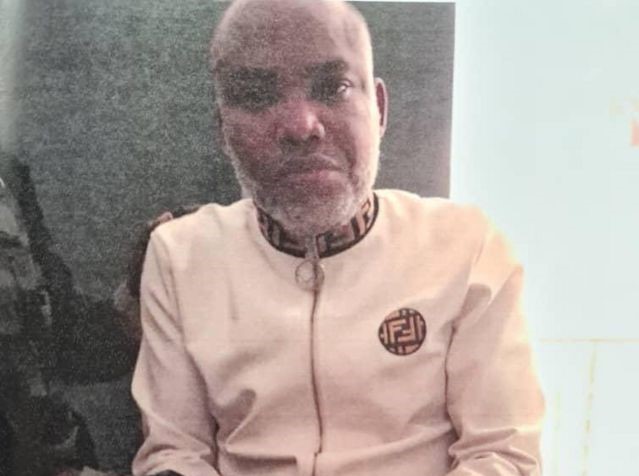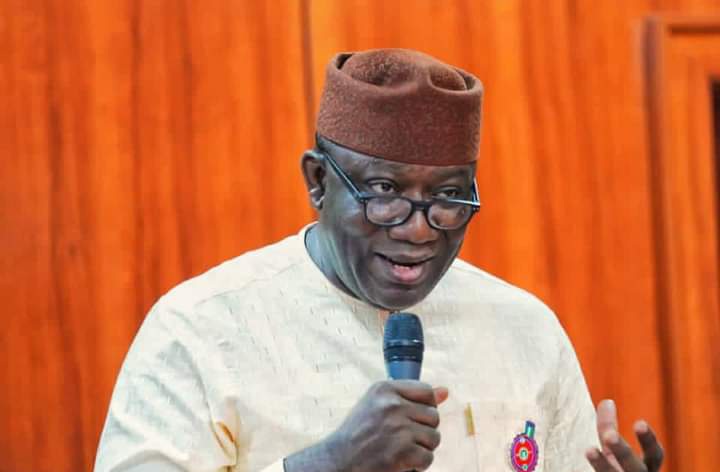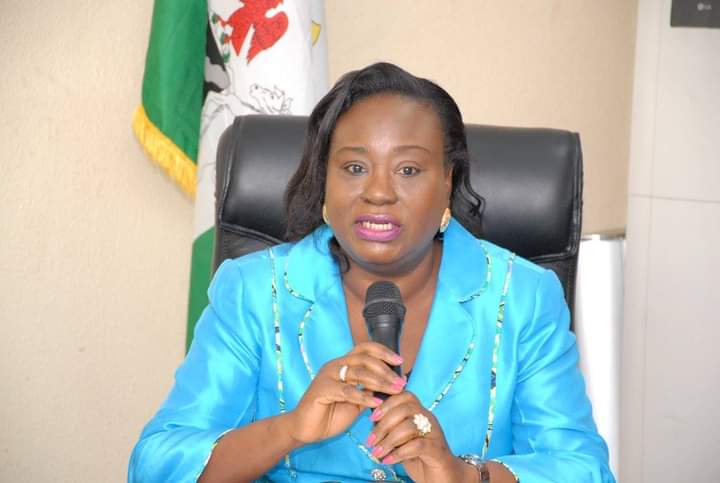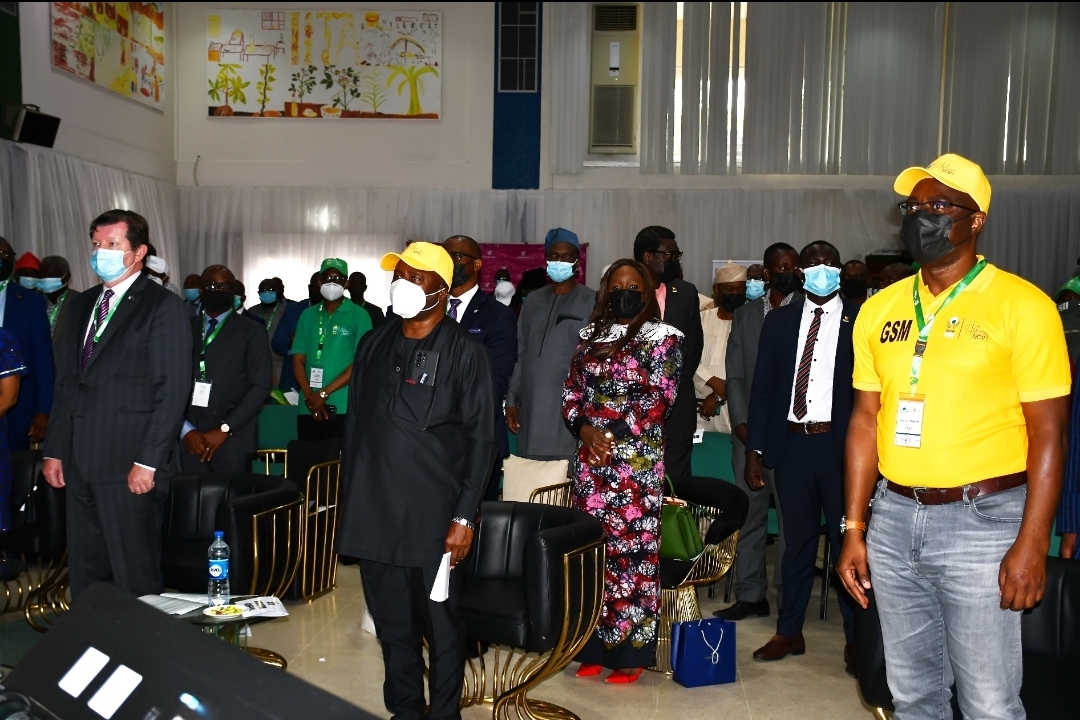“Distinguished ladies and gentlemen, in closing, I will be right in stating that nearly everyone in this hall will agree that we have serious technology infrastructure deficit in Nigeria which is negatively affecting our pace of development as a nation. What may not be obvious to everyone is how bad the situation is. The impact of infrastructure inefficiencies in Nigeria has been severe and has lasted for several decades and is reflected in impaired domestic growth, poor international competitiveness, and slowed rate of development.”
That was Engr Ernest Ndukwe, former Executive Vice Chairman of the Nigerian Communications Commission (NCC) and now Chairman of MTN Nigeria, speaking at one of the activities marking Dr Raymond Aleogho Dokpesi’s birthday which began in Abuja last week. Delivering a paper titled, Inadequate Technology Infrastructure as the Bane of Nigeria’s Development, at the occasion where Dokpesi’s biography, The Handkerchief, was also presented to the public, Ndukwe took a caustic look at the nation’s approach to technology adoption, development and acceptance and came to the verdict that the nation has not done well at all, thus challenging the authorities and the citizenry, to change their approach if the nation must partake in international competitiveness and national growth.
At well over 70, Ndukwe speaks with no water in his mouth. He is widely reputed as the man who green-lighted the telecommunications sector in Nigeria by dressing it up for local and international competition. He ignited the strange fire that exploded the growth in the sector, which the nation still holds on to jealously today. He would acknowledge the opportunity given to him to serve the nation but no platitudes for the noticeable inefficiencies that hold the people down.
Although those in attendance may have expected him to speak on telecommunications, which is his forte, Ndukwe demonstrated that every spectrum of life rests on technology which makes it more imperative for the nation to pay more attention to its development. He focussed on key subheads which include: Technology in Education, Technology in Transportation, Technology in Energy/Power, Technology in Water, and Communications and Information Technology.
Advertisement
Ndukwe observed that the world is currently experiencing a period of intense innovation which is driven by the digitisation of economies. Clearly, one of the lessons of history is that it is those nations that lead the development of new technology, or new thinking, that emerge as leaders in the world. They are nations that can harness developments in science and technology, and apply them to many of the social, economic and environmental challenges that face mankind, he said.
The stats he presented for consideration didn’t portray Nigeria as having the enthusiasm to share from the benefits of modern technology. “The World Economic Forum report, 2011- 2012, in terms of the quality of overall infrastructure, ranked Nigeria at 125 out of 142 countries, with a value of 3.0 (1.3 below the mean value). In comparison, Cameroon was ranked at 122 and Ghana at 90. Regarding road quality, Nigeria was ranked at 120, with port infrastructure at 117, railroad quality at 104 and air transport quality at 104. Nigeria was also ranked at 139 out of 142 countries in terms of the quality of electricity supply, with a value of 1.5 (3.3 below the mean value). These rankings have remained largely unchanged as of 2020, Ndukwe pointed out.
The graphic presentation was even more depressing, and the audience must have felt a sense of shame and letdown by those entrusted with the responsibilities to make things happen. From the foregoing there is something wrong, very wrong and we must admit before contemplating solutions.
Advertisement
Ndukwe observed that the country has the human capital to make things happen except that there is an inherent flaw which seems to be eating the nation from inside: self-imposed problems, totally corrosive and self destruct.
“One that immediately comes to mind,” according to Ndukwe, “is corruption. The second is the incompetence of the nation’s managers in critical leadership positions. I am not referring here to the elected officials because, it is only the voters that have the right to choose their leaders. I speak of those appointed to head various critical institutions and agencies. No one can give what he/she does not have. In Nigeria we appoint medical doctors/CMDs by quota, Vice Chancellors by state of origin, we select air force pilots by quota, even appoint science and mathematics teachers by quota.”
Seated in the audience and soaking in every information was former Vice President Atiku Abubakar, whose singular responsibility at the occasion was to present Dokpesi’s biography to the public. The perennial would-be king would never miss such a tempting opportunity to declare that we need the right man to fix the nation and reform all the processes that would make her a modern state. But he remains a standing witness to the change.
The panel of discussants was led by Prof. Pat Utomi, founder, Centre for Value and Leadership, whose big dream for the Lagos Business was to produce the right human capital for a country in need of help; others being Dr Wunmi Hasan, CEO, Hightech for Nig Women & Youth; Rock Adote, Director, Information Technology, Uhuru Group; and Obi Brown, COO, StudyLab360.
Advertisement
All the speakers agree that Nigeria has a surfeit of capacity in every human endeavour, especially in the field of technology, but without appropriate development and utilisation, the country would not be able to compete internationally. And she is not competing!
Utomi who confessed to have been close to those at the seat of power over the years, called out Atiku to witness his declarations.
“Government policies have not enabled technology to advance as it should in our country. We need policy makers who are savvy enough to understand where things are going,” he said.
And because they failed to understand or even strive to, this happened: “It is a tragedy and a shame to our country that the power situation is where it is today. Most of the challenges in the sector were caused by errors in choices made by leaders,” Utomi recalled with pain.
Advertisement
Here is my little conclusion drawn from that lecture. Nigeria’s placement in the index of growth and development is very shameful and abysmal, so overwhelmingly deplorable that the people don’t even know how deep we are in the mire.
My little advice is that we forget this irritating baloney of the biggest economy in Africa and the biggest black nation in the world, rebuke the lying devil who seems to beguile us with the lying spirit of a non-existent achievement, and confront the ugly reality genuinely so that we can, at least, dress up the country for growth in readiness for a generation that may not be as lousy as their forebears.
Advertisement
Add a comment







